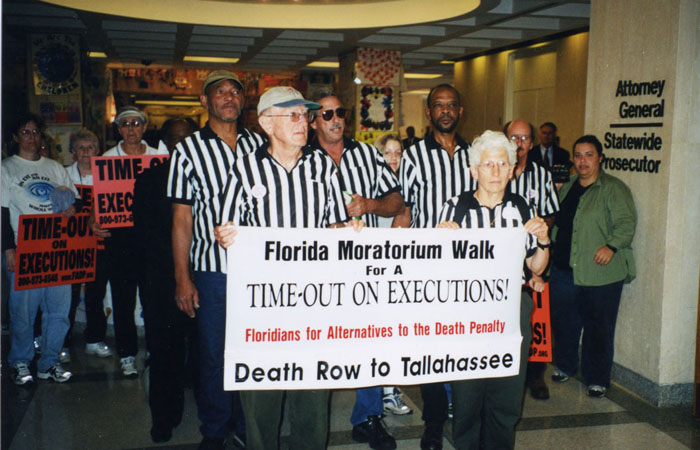Collections : [National Death Penalty Archive]
National Death Penalty Archive
Researchers, writers, activists, and records on capital punishment in the United States.
Search Constraints
Start Over You searched for: Collecting Area National Death Penalty Archive Remove constraint Collecting Area: National Death Penalty Archive Date range 1782 to 1784 Remove constraint Date range: <span class="from" data-blrl-begin="1782">1782</span> to <span class="to" data-blrl-end="1784">1784</span>Search Results
Correspondence, 1962-2007, Undated 7.5 cubic ft.
Watt Espy sent and received a significant amount of correspondence as part of his work on the Capital Punishment Research Project. The majority of correspondence, however, was not organized when it arrived at the University at Albany. The archivists elected to arrange it into two groups: files devoted to prominent or regular correspondents, and general correspondence. The former includes key academics (Michael Radelet, Hugo Bedeau, Margaret Vandiver), attorneys (The California Appellate Project, NAACP Legal Defense and Educational Fund, Ohio Public Defender's Office), death penalty abolitionists and advocacy group executives (Rev. Joe Ingle, Sister Helen Prejean, Henry Schwarzschild), prominent prisoners and their families (Kerry Max Cook, Gary McGivern), and researchers who frequently corresponded with Espy. There were also a small number of files that Espy organized by subject, such as letters to and from prisoners, telephone inquiries, or correspondence relating to executions in a particular state, and the archivists retained this order and kept the files in the first group. The second group includes more infrequent correspondents, usually general inquiries sent to libraries or archives for records relating to individuals executed or for research requests.
